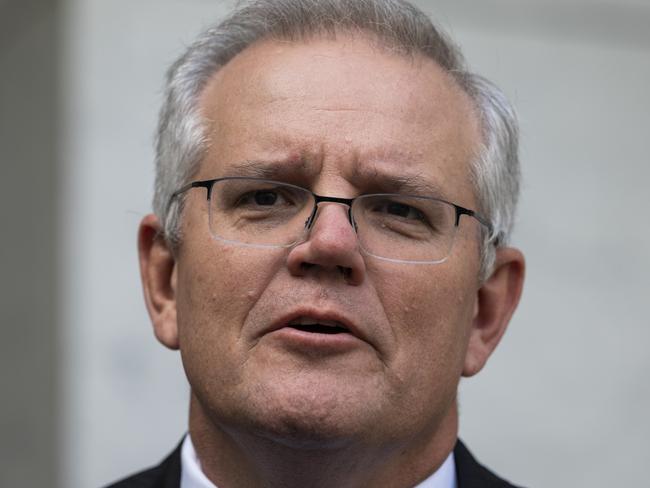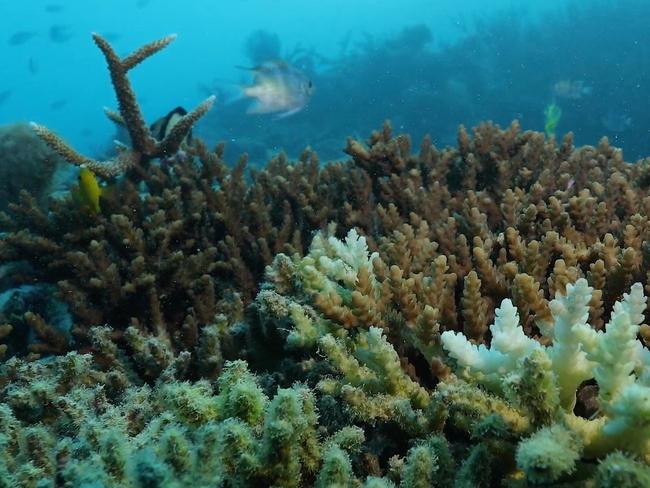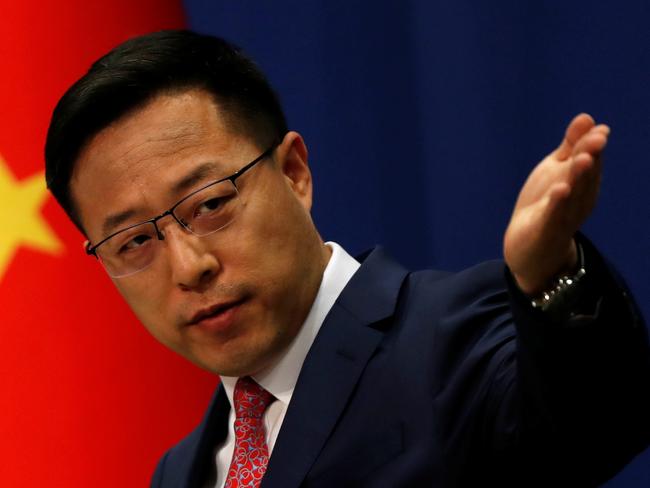PM Morrison hits out at ‘appalling’ UNESCO decision to downgrade Great Barrier Reef
Scott Morrison has lashed an ‘appalling’ decision to downgrade the Great Barrier Reef, as China dismisses claims it was behind the move as ‘smear and slander’.

Australia is lobbying international allies to overturn an “appalling” decision to list the Great Barrier Reef as in danger, which the government believes was driven by China, the prime minister says.
The United Nations Educational, Scientific and Cultural Organisation (UNESCO) criticised Australia’s slow progress on emissions reduction as it downgraded the health of the 2,300km reef, a decision the federal government claimed came as a shock.
The 21-nation World Heritage Committee is chaired by China, and the government has implied “politics” were behind the move, claiming it was an abrupt reversal on previous assurances from UNESCO.
Prime Minister Scott Morrison confirmed Australia had reached out to the international community in an effort to have the recommendation overturned.
“The UNESCO process has been appalling,” he told 2GB Radio on Thursday.
RELATED: China accuses Australia of ‘abuse’, says world trade rules designed to protect western interests


“We really do think that this process has been … quite different to when this issue was dealt with by UNESCO early on in our government.”
In its rationale for the decision, UNESCO said there had been “insufficient progress” from Australia on emissions reduction and noted multiple mass bleaching events in the past decade.
The federal government has committed $3b towards its Reef 2050 Plan, but has been isolated in the international community by its refusal to commit to a net zero emissions target by 2050.
Despite the Coalition claiming it had been blindsided by the move, independent Zali Steggall said repeated warnings to Australia over climate inaction meant it should “not come as a surprise”.
Chinese foreign ministry spokesman Zhao Lijian flatly rejected suggestions Beijing had forced the move.
“Some people in Australia have been spreading China-related rumours and disinformation out of ideological bias,” he said on Tuesday.
“In the same vein, what you just mentioned is totally groundless smear and slander.”

Mr Zhao also took aim at outgoing Department of Foreign Affairs and Trade secretary Frances Adamson, a former ambassador to China, who warned Beijing was motivated by a “volatile combination” of insecurity and power.
“Few really grasp that this great power is still dogged by insecurity as much as driven by ambition, that it has a deeply defensive mindset, perceiving external threats, even as it pushes its interests over those of others,” she said.
“Insecurity and power can be a volatile combination, more so if inadvertently mishandled.”
Mr Zhao urged Australians to reject “smears” from the Australian government and claimed Ms Adamson’s critique “couldn’t be further from the fact”.
“The Australian side bears full responsibility,” he said.
“The ball is in Australia’s court with regard to improving bilateral relations. We hope the Australian government will adopt an objective, rational and responsible attitude, think carefully about whether it sees China as a partner or threat, and do more in the interest of mutual trust and co-operation between the two sides.”
Secretary Adamson said a Lowy Institute poll, revealing Australians’ trust in China, had reached new lows and showed Beijing’s attempts to exert influence in the region had been counter-productive.
Mr Zhao confirmed Beijing had “noted” the poll, but questioned its reliability, given it surveyed around 2,000 people.
“We hope the Australian people from all walks of life can be clear-eyed to tell right from wrong, view China and its development in an objective light, reject certain Australians’ smears against China, and show their understanding and support for China-Australia friendship and co-operation,” he said.



